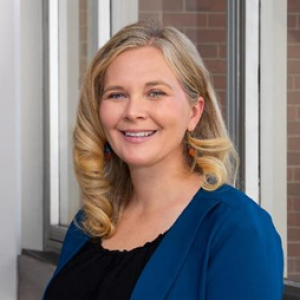The Center for Materials Data Science for Reliability and Degradation (MDS-Rely), which Case Western Reserve University and the University of Pittsburgh co-founded in 2021 with support from the U.S. National Science Foundation (NSF), has added a third research site.
Adding Carnegie Mellon University (CMU) with a new NSF grant further expands the center’s reach.
“The addition of CMU to MDS-Rely advances the center's capabilities in materials data science and artificial intelligence,” said Laura Bruckman, director of MDS-Rely and the Climo Associate Professor of Materials Science and Engineering at Case Western Reserve. “MDS-Rely allows us to advance industry's capabilities to formulate, design and manufacture materials and components for today's economy.”
MDS-Rely is an NSF Industry-University Collaborative Research Center (IUCRC) that promotes partnerships between industry, governmental organizations and universities to advance research, innovation and workforce development. Through close collaboration and the use of data science, the center solves current challenges and advances understanding of essential materials.
MDS-Rely members include Eaton, Lawrence Livermore National Laboratory, National Energy Technology Laboratory, National Institute of Standards and Technology, Naval Nuclear Laboratory, Parker Hannifin, PPG Industries, U.S. Army Devcom Armaments Center and Westinghouse.
The members form the Industry Advisory Board, which funds and shapes the center’s research portfolio through regular engagement with project teams and center leadership.
Bruckman said semi-annual research meetings provide robust networking opportunities for students, faculty and industry attendees, while also serving a critical research purpose in convening the Industry Advisory Board to direct center research funding and priorities.
“MDS-Rely has engaged more than 40 students, 17 faculty and 20 publications and software packages with over $1 million in research funding,” Bruckman said, “and we are excited to have Carnegie Mellon join to catalyze our impact as we prepare for our next phase.”


